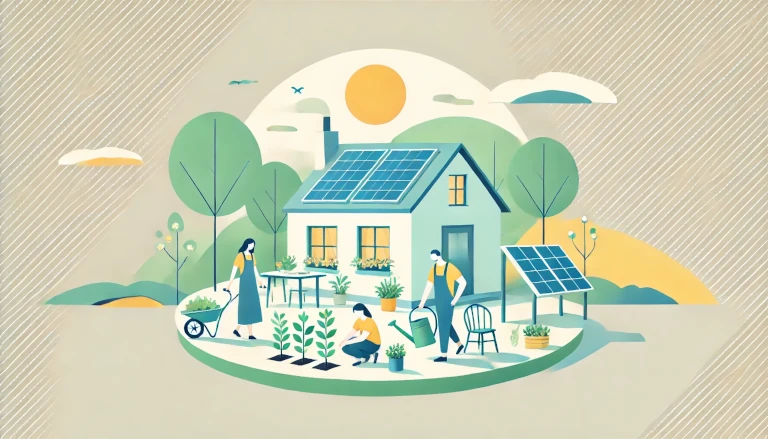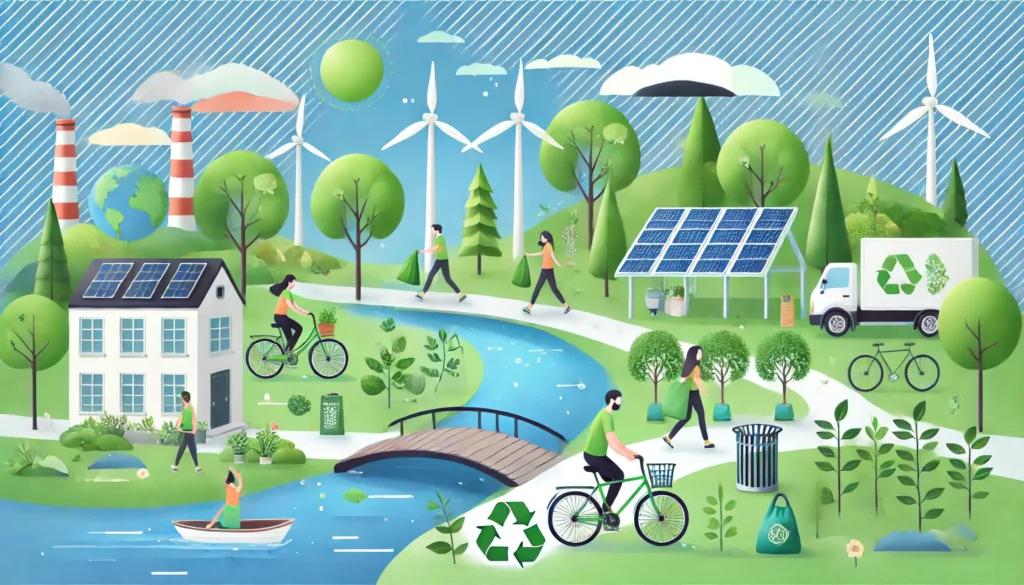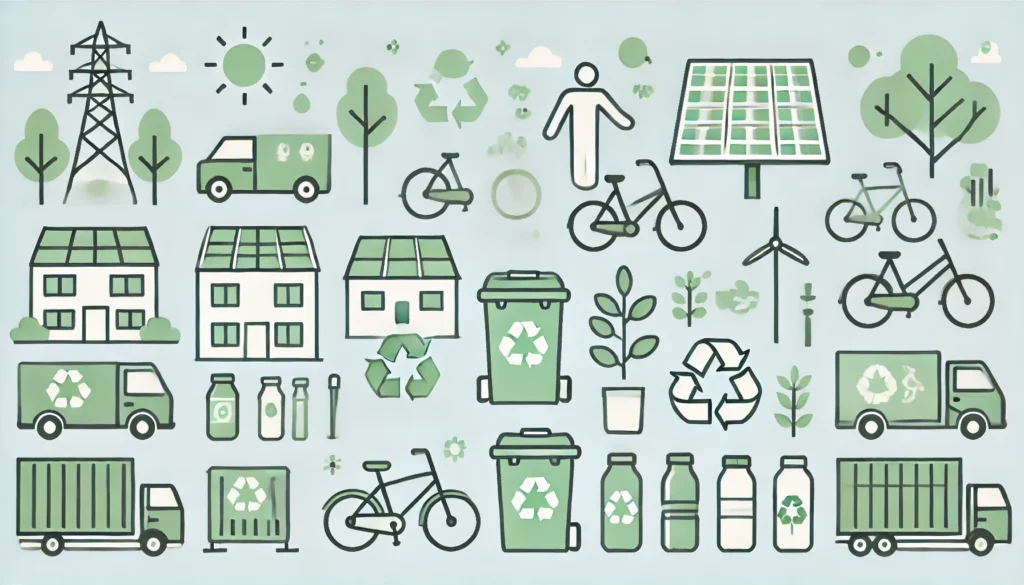In today’s fast-paced, consumer-driven world, the idea of becoming more self-sufficient has gained popularity. Self-sufficiency means reducing your dependence on external sources for your basic needs, such as food, energy, and resources. By taking small steps towards self-sufficiency, you can save money, live more sustainably, and gain a sense of independence. In this blog post, we will explore 10 practical ways you can try to become more self-sufficient in your everyday life.
1. Grow Your Own Food
One of the most effective ways to become self-sufficient is by growing your own food. Whether you have a small balcony or a backyard, you can start with simple plants like herbs, tomatoes, or lettuce. Growing your own food not only saves money but also ensures that you have access to fresh, organic produce.
Example:
Start by planting a small herb garden with basil, mint, and rosemary. These are easy to grow and can be used in daily cooking, reducing the need to buy herbs from the store.
2. Install Solar Panels for Energy Independence
Installing solar panels on your rooftop is a great way to reduce your reliance on the electrical grid. Solar energy is a clean, renewable resource that can power your home and significantly lower your energy bills. Over time, you may even generate enough energy to sell back to the grid, making you even more self-sufficient.
Example:
Many homeowners in sunny areas have installed solar panels and are now able to generate their own electricity, saving hundreds of dollars each year on energy costs.
3. Start Composting
Composting is a simple and effective way to turn organic waste into nutrient-rich soil. By composting kitchen scraps, garden waste, and even paper products, you can create compost that can be used to fertilize your garden. This reduces the need for chemical fertilizers and helps you recycle waste effectively.
Example:
Set up a small compost bin in your backyard where you can throw in vegetable peels, coffee grounds, and eggshells. Over time, these will decompose into rich compost that you can use to grow your own vegetables.
4. Harvest Rainwater
Rainwater harvesting is an excellent way to reduce water consumption and become more self-sufficient. By installing a rainwater collection system, you can store rainwater and use it for tasks like gardening, cleaning, or even flushing toilets. This helps conserve water and reduces your dependence on municipal water supply.
Example:
Place a rain barrel under your home’s downspouts to collect water during rainy seasons. This water can then be used to irrigate your garden during dry periods.
5. Learn Basic DIY Skills
Learning DIY (do-it-yourself) skills can save you money and reduce your reliance on professionals for everyday tasks. Whether it’s fixing a leaky faucet, sewing a button, or building simple furniture, developing basic DIY skills will help you become more self-reliant.
Example:
Instead of calling a plumber for minor issues, learn how to fix small leaks or unclog drains. You can find many tutorials online that can teach you basic home repair skills.
6. Reduce Energy Consumption
One of the simplest ways to become self-sufficient is by reducing your overall energy consumption. Start by using energy-efficient appliances, LED light bulbs, and smart thermostats. Also, be mindful of turning off lights and electronics when not in use.
Example:
Replace traditional incandescent bulbs with energy-efficient LED lights. This not only reduces electricity usage but also lowers your utility bills.
7. Raise Backyard Chickens for Eggs
If you have enough space, consider raising backyard chickens for a sustainable source of eggs. Chickens are relatively easy to care for and provide fresh eggs regularly. Not only does this make you more self-sufficient, but it also ensures that you have a healthy, organic food source.
Example:
Many homeowners raise 2–4 chickens in their backyard to produce enough eggs for their family, reducing the need to buy eggs from the grocery store.
8. Make Your Own Cleaning Products
Commercial cleaning products are often expensive and contain harmful chemicals. By making your own natural cleaning products, you can save money and reduce your exposure to toxins. Simple ingredients like vinegar, baking soda, and essential oils can be used to make effective, eco-friendly cleaners.
Example:
Mix white vinegar and water in equal parts to create an all-purpose cleaner for countertops, floors, and windows. Add a few drops of lemon essential oil for a fresh scent.
9. Use a Bicycle for Short Trips
Instead of relying on a car for short trips, consider riding a bicycle. Not only does biking save money on fuel, but it also reduces your carbon footprint and helps you stay fit. Using a bike for errands or commuting short distances is an easy way to reduce your reliance on fossil fuels.
Example:
If you live close to a grocery store or a park, use your bicycle to run errands instead of driving. You’ll save money on gas and reduce emissions at the same time.
10. Learn to Preserve Food
Preserving food is an age-old technique that can help you store food for the long term and reduce food waste. Whether it’s canning fruits and vegetables, freezing, or drying foods, preserving allows you to make the most of your harvest and enjoy seasonal produce year-round.
Example:
If you have an abundance of tomatoes from your garden, you can preserve them by canning or making tomato sauce and storing it for use in the winter months.
Becoming self-sufficient doesn’t happen overnight, but by making small, sustainable changes, you can reduce your reliance on external sources and live a more independent life. From growing your own food to harvesting rainwater and learning DIY skills, these 10 practical steps will help you on your journey toward self-sufficiency. The benefits are not only financial but also environmental, as you reduce waste and live more sustainably.
Discover more from Green Ecosystem - Renewable Energy, Agriculture, and Environmental Sustainability
Subscribe to get the latest posts sent to your email.


